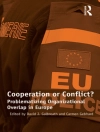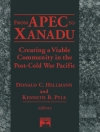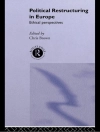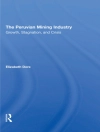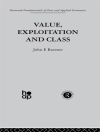Numerous political commentators have noted the rise of the radical right worldwide. How has the radical right responded to the COVID-19 pandemic? Has the radical right been legitimized in a world of closed borders and greater securitization? Have radical right regimes in power cracked under the strains of the crisis and thus undermined their own political fortunes? Have radical right-wing responses to COVID-19 been uniform or diversified? These are some of the questions tackled in Responses to the COVID-19 Pandemic by the Radical Right.
This volume gathers a collection of short pieces, which highlight the multi-faceted ways in which right-wing and radical right-wing political forces have responded to the COVID-19 pandemic. It presents research by scholars from all around the world concentrating on the evolution of radical right-wing movements since the COVID-19 crisis began and their influence on mainstream and alternative narratives.
The edited volume includes case studies as well as far-reaching reports on the radical right’s utilizing of the crisis to re-shape ideas about sovereignty, globalization, democracy, equality, diversity, and political legitimacy. Such studies comprise cases on gender and class, racism, religious hatred, scapegoating, anti-Semitism and Sinophobia, conspiracy theories, and online radicalization, focusing on locations as diverse as the US, Canada, Brazil, Belgium, Germany, Switzerland, Sweden, Italy, France, Spain, Ukraine, Latvia, Israel, and India. All such studies are compiled in a total of six chapters and an epilogue, organized thematically and by country.
Over de auteur
Dr. Tamir Bar-On is a Professor-Researcher at the Tec de Monterrey in Querétaro, Mexico. He is a member of Mexico’s Sistema Nacional de Investigadores (SNI), the National System for Researchers. He completed his Ph D at Mc Gill University. He is the author of Where Have All The Fascists Gone? (Ashgate 2007; Routledge, 2016); Rethinking the French New Right: Alternatives to modernity (Routledge, 2013); The World through Soccer: The Cultural Impact of a Global Sport (Rowman and Littlefield, 2014); and Beyond Soccer: International Relations and Politics as Seen through the Beautiful Game (Rowman and Littlefield, 2017).
Bàrbara Molas is a Ph D candidate in History at York University (Toronto) and Head of Doctoral Fellows at the Centre for Analysis of the Radical Right (CARR). She studied World History (MA) at the Universitat Pompeu Fabra of Barcelona and at the Freie Universität Berlin. Bàrbara has contributed to the study of transnational Francoism, neo-Francoism, and the history of far-right ideas on European and Canadian cultural integration. At York University, she studies far-right understandings of Canadian multiculturalism (1930s–1970s). She has published in Active History, the Globe and Mail, and Rantt Media, among others.


